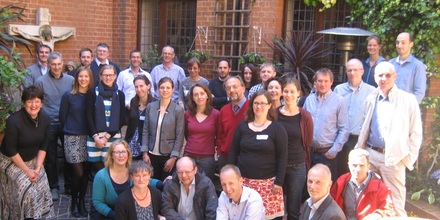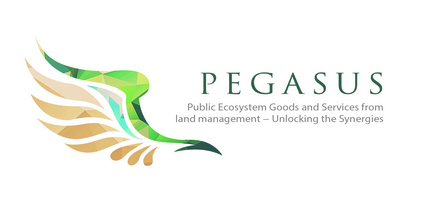Agriculture & Land Management
Our Work
Latest in Future of the CAP
-


EU research project PEGASUS - new thinking on sustainable land management
EU research project PEGASUS kicked off in London on 29-30 April. The three-year project, led by IEEP, is focused on transforming land management approaches in the EU to improve the delivery of public goods and ecosystem services from rural areas.
-
High Nature Value farming throughout EU-27 and its financial support under the CAP
This study reviews Member States’ estimates of the extent of HNV farmland and use of RDP measures and the CMEF indicators, then identifies future priorities for CAP support for HNV farming and discusses the support opportunities under the reformed CAP. It offers detailed new evidence about the combined effect of Pillar 1 and Pillar 2 CAP payments on the economic and environmental viability of a typical HNV farming system in three Member States.
-
A greener CAP: still within reach?
The greening of the CAP hangs in the balance in the final negotiations; a synthesis of key issues and requirements.
-
EP vote must not undermine a greener CAP
A decade’s progress in improving the Common Agricultural Policy’s environmental credentials risks being lost if the EP vote to water down the Commission’s ambitious proposals to green the CAP.
-
Designing RDPs fit for the environment
Substantial changes to rural development regulation have been proposed which provide significant opportunities for Member States to deliver more for the environment. This report highlights some of these opportunities and sets out a series of principles and environmental priorities to help guide Member States in designing their future rural development programmes.
-
Delivering environmental benefits through entry-level agri-environment schemes in the EU
A new study of the 2007-13 agri-environment schemes across the whole of EU-27 provides the first typology of ‘entry-level’ agri-environment management and environmental objectives, plus a detailed insight into the design of entry-level agri-environment schemes and calculation of payment rates in seven Member States.
-
Redesigning the CAP to deliver public goods
As a contribution to the CAP reform debate, this report considers options for redesigning the Common Agricultural Policy (CAP) to maximise the delivery of public goods, particularly in relation to the environment and rural vitality.
-
Developing a Territorial Approach for the CAP
A timely discussion paper explaining how a territorial approach can be developed within rural development policy and other aspects of the CAP.
-
Costs of delivering environmental benefits through agriculture and forestry management
For the first time, this report provides an estimate of the scale of funding needed to achieve environmental outcomes through agricultural and forestry management in the EU to 2020.
-
Public Goods and Public Intervention in Agriculture
What is the justification for spending a substantial sum on supporting agriculture in Europe? Is the principle public money for public goods? If so, what are the public goods, how ...
Related
-

Debating the Future of The Common Agricultural Policy
The IEEP's platform to share thoughtful commentary and analysis on the future development of European agriculture and rural development policy.
Highlights
-

Costs of delivering environmental benefits through agriculture and forestry management
For the first time, this report provides an estimate of the scale of funding needed to achieve environmental outcomes through agricultural and forestry management in the EU to 2020.
-

Public Goods and Public Intervention in Agriculture
What is the justification for spending a substantial sum on supporting agriculture in Europe? Is the principle public money for public goods? If so, what are the public goods, how ...
